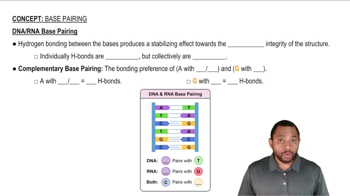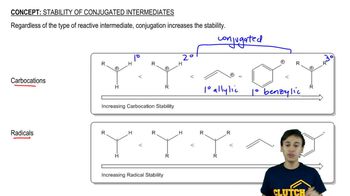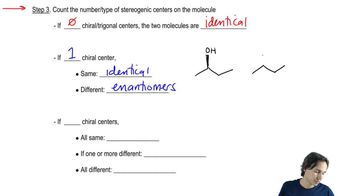Specify which in each pair is the harder Lewis acid. Justify your choice beyond just looking at Table 20.2.
(b) Li+ vs. Na+
 Verified step by step guidance
Verified step by step guidance Verified video answer for a similar problem:
Verified video answer for a similar problem:



 2:49m
2:49mMaster The Lewis definition of acids and bases. with a bite sized video explanation from Johnny
Start learning